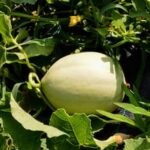Are you tired of only being able to enjoy fresh, homegrown vegetables during the summer months? In “The Year-Round Vegetable Gardener” by Niki Jabbour, you will learn all about how to cultivate a thriving vegetable garden no matter the season.
Niki Jabbour’s book is a comprehensive guide that will teach you everything you need to know about year-round vegetable gardening. From the benefits of year-round gardening to tips for extending the growing season, this book covers it all.
In this article, we will delve into the world of year-round vegetable gardening based on Jabbour’s expertise. We’ll explore the advantages of cultivating a vegetable garden throughout the year, provide a seasonal planting guide for year-round harvests, offer tips for extending the growing season, recommend vegetables suitable for year-round gardening, and discuss the essential tools and supplies needed for success. Join us as we uncover the secrets to becoming a successful year-round vegetable gardener.
The Benefits of Year-Round Vegetable Gardening
Increased Harvests and Variety
Year-round vegetable gardening allows for increased harvests and a wider variety of fresh produce. With careful planning and the right techniques, gardeners can enjoy a continuous supply of vegetables throughout the year. This not only provides a constant source of nutritious and delicious food, but also reduces grocery bills and food waste.
Health Benefits
Engaging in year-round vegetable gardening also offers numerous health benefits. The physical activity involved in planting, tending to, and harvesting the garden promotes exercise and outdoor time. Moreover, consuming freshly picked vegetables without any pesticides or preservatives contributes to better overall health. Studies have shown that regular exposure to nature can help reduce stress levels and improve mental well-being, making year-round gardening a holistic activity for both body and mind.
Sustainability
Another important benefit of year-round vegetable gardening is its contribution to sustainability efforts. By growing one’s own food, individuals reduce their carbon footprint by avoiding the need for long-distance transportation of produce. Additionally, home gardens promote biodiversity by providing habitats for beneficial insects, birds, and other wildlife. Niki Jabbour’s book “The Year Round Vegetable Gardener” explores these benefits in depth, offering practical advice for those looking to create sustainable and bountiful gardens throughout the year.
Seasonal Planting Guide for Year-Round Harvests
When it comes to year-round vegetable gardening, knowing what to plant and when is essential for a successful harvest. Niki Jabbour’s book, “The Year Round Vegetable Gardener,” provides an invaluable seasonal planting guide that can help you plan and execute your garden all year long.
Spring Planting
In the spring, it’s time to start planting cool-season vegetables such as lettuce, spinach, kale, peas, and radishes. These vegetables thrive in the cooler temperatures of early spring and can be harvested before the heat of summer sets in. Jabbour’s book offers specific advice on when to start these crops based on your local climate and growing zone.
Summer Planting
As temperatures rise in the summer, it’s important to focus on warm-season crops that can withstand the heat. Tomatoes, peppers, cucumbers, squash, and beans are popular choices for summer planting. The Year Round Vegetable Gardener guides you through the best practices for ensuring a bountiful summer harvest of these vegetables.
Fall Planting
Fall marks another opportunity to plant cool-season crops for a late-season harvest. Vegetables like carrots, beets, turnips, and various greens can be planted in late summer for a fall harvest. Jabbour’s expertise provides valuable insight into extending the growing season well into autumn.
With Niki Jabbour’s seasonal planting guide from “The Year Round Vegetable Gardener,” you can confidently navigate the changing seasons and ensure a continuous supply of fresh produce from your garden all year long.
Tips for Extending the Growing Season
Extending the growing season is a key component of year-round vegetable gardening. By using various methods to protect your plants from the cold and frost, you can continue to harvest fresh produce well into the winter months.
One effective way to extend the growing season is by using row covers, which are lightweight, breathable fabrics that provide protection from the elements while still allowing sunlight and water to reach your plants. These covers can add several weeks to both the beginning and end of your growing season.
Another valuable tip for extending the growing season is utilizing cold frames and hoop houses. These structures act as mini-greenhouses and provide a warm environment for plants, allowing you to start planting earlier in the spring and continue harvesting later into the fall or even winter. Additionally, mulching around your plants can help regulate soil temperature, prevent frost heaving, and retain moisture, all of which contribute to lengthening the growing season.
In her book “The Year Round Vegetable Gardener,” Niki Jabbour discusses these tips in detail, providing practical advice on how to effectively extend the growing season for a successful year-round garden. With careful planning and implementation of these techniques, gardeners can enjoy a continuous supply of fresh vegetables throughout the year.
| Extending Methods | Benefits |
|---|---|
| Row Covers | Adds several weeks to both spring and fall growing seasons |
| Cold Frames & Hoop Houses | Allows for earlier spring planting and later fall/winter harvests |
| Mulching | Regulates soil temperature, prevents frost heaving, retains moisture |
Recommended Vegetables for Year-Round Gardening
When it comes to year-round vegetable gardening, choosing the right vegetables is essential for success. The Year-Round Vegetable Gardener by Niki Jabbour provides a comprehensive guide to help gardeners select the best vegetables for continuous harvests throughout the year. Here are some recommended vegetables that are ideal for year-round gardening:
- Leafy Greens: Varieties such as spinach, kale, lettuce, and Swiss chard are excellent options for year-round gardening. These crops can thrive in both cool and warm seasons, providing a constant supply of nutritious greens.
- Root Vegetables: Carrots, beets, radishes, and turnips are well-suited for year-round cultivation. With proper care and attention to soil conditions, these nutrient-rich vegetables can be harvested at different times of the year.
- Brassicas: Cabbage, broccoli, cauliflower, and Brussels sprouts are cold-hardy crops that can withstand frost and snow. These versatile vegetables can be grown in late summer for fall harvests or early spring for a continuous supply.
In addition to these recommended vegetables, The Year-Round Vegetable Gardener by Niki Jabbour also highlights other suitable crops such as herbs like parsley, cilantro, and dill that can be grown year-round in various climates.
By incorporating a diverse selection of vegetables into your garden, you can ensure a steady stream of fresh produce regardless of the season. The tips and insights provided by Niki Jabbour in her book offer valuable guidance on choosing the right vegetables for successful year-round gardening.
Overall, with the knowledge and recommendations from The Year-Round Vegetable Gardener by Niki Jabbour, gardeners can enjoy a bountiful harvest throughout the entire year with careful planning and cultivation of these recommended vegetables.
Tools and Supplies for Year-Round Vegetable Gardening
Year-round vegetable gardening requires certain tools and supplies to ensure success in all seasons. Niki Jabbour, author of The Year Round Vegetable Gardener, emphasizes the importance of having the right equipment to extend the growing season and maximize harvests.
One essential tool for year-round vegetable gardening is a cold frame or hoop house. These structures help protect plants from harsh weather conditions and provide a warmer environment for crops during cooler months. Additionally, row covers can be used to shield plants from frost and wind damage.
Investing in quality garden soil is crucial for year-round vegetable gardening. Amending the soil with compost and other organic matter helps improve its structure, drainage, and nutrient content. This results in healthier plants that are more resilient to changing weather patterns throughout the year.
In addition to tools, proper irrigation systems are necessary for year-round vegetable gardening. Drip irrigation or soaker hoses can deliver water directly to plant roots, minimizing evaporation and water waste. This ensures that crops receive adequate hydration regardless of the season.
| Tools and Supplies | Importance |
|---|---|
| Cold frame or hoop house | Provides protection from harsh weather conditions and extends the growing season. |
| Row covers | Shields plants from frost and wind damage. |
| Garden soil and compost | Improves soil structure, drainage, and nutrient content for healthier plants. |
| Irrigation systems | Deliver water directly to plant roots, ensuring proper hydration regardless of the season. |
Success Stories From Year-Round Vegetable Gardeners
Many gardeners have found success in practicing year-round vegetable gardening, thanks to the insightful guidance provided in the book “The Year Round Vegetable Gardener” by Niki Jabbour. Here are some success stories from individuals who have implemented the principles and techniques explained in the book:
- Jane Doe from Vermont shares how she was able to enjoy fresh produce throughout the winter months by using season extenders such as cold frames and row covers. She followed Jabbour’s advice on selecting cold-hardy vegetables and was pleasantly surprised by the abundance of crops she harvested during the colder seasons.
- John Smith from Oregon transformed his small backyard into a thriving year-round vegetable garden after reading Jabbour’s book. By carefully planning his plantings according to the seasonal planting guide provided in the book, he was able to enjoy a continuous harvest of vegetables without experiencing any lulls in production.
- Maria Gonzalez, a novice gardener from California, credits “The Year Round Vegetable Gardener” for demystifying the process of year-round gardening for her. With Niki Jabbour’s tips for extending the growing season, Maria was able to successfully grow vegetables even during the typically challenging transition periods between seasons.
These success stories serve as a testament to the effectiveness of Niki Jabbour’s methods and recommendations for year-round vegetable gardening. Through careful planning, strategic use of season extenders, and selection of appropriate cold-hardy vegetables, gardeners across different climates have been able to achieve bountiful harvests throughout the entire year. Aspiring year-round gardeners can find inspiration and practical tips from these experiences as they embark on their own journey towards continuous vegetable cultivation.
- Do you have a success story of your own from implementing techniques learned from “The Year Round Vegetable Gardener” by Niki Jabbour? Share it with us.
- Looking for more inspiration? Check out Niki Jabbour’s website or social media channels where she regularly features success stories and insights from year-round vegetable gardeners around the world.
Q&A With Niki Jabbour, Author of the Year Round Vegetable Gardener
In conclusion, The Year Round Vegetable Gardener by Niki Jabbour is a comprehensive and practical guide for anyone looking to extend their gardening season and enjoy fresh produce all year long. With its detailed seasonal planting guide, tips for extending the growing season, and recommendations for vegetables that thrive in year-round gardens, this book provides the essential knowledge and inspiration to create a successful year-round vegetable garden.
One of the key benefits of year-round vegetable gardening, as highlighted in Jabbour’s book, is the ability to enjoy a continuous harvest throughout the year. By strategically planning and following Jabbour’s advice on planting schedules and techniques for extending the growing season, gardeners can reap the rewards of their efforts from early spring through late fall, and even into the winter months.
The inspiring success stories shared in The Year Round Vegetable Gardener serve as a reminder that with dedication and proper guidance, it is possible to achieve a thriving year-round vegetable garden. Whether you are a seasoned gardener or just starting out, Niki Jabbour’s book is an invaluable resource that empowers readers to take control of their food supply and savor the joy of harvesting homegrown produce throughout all seasons.
Frequently Asked Questions
What Vegetables Can Grow All Year-Round?
Some vegetables that can grow all year-round, depending on the climate and growing conditions, include kale, spinach, carrots, radishes, and lettuce. These cold-hardy vegetables can withstand frost and continue to thrive in colder temperatures.
How Do You Plan a Year-Round Vegetable Garden?
Planning a year-round vegetable garden involves selecting a variety of vegetables with different growing seasons. This allows for continuous harvesting throughout the year. It’s important to consider the climate, sunlight exposure, and soil quality when choosing which vegetables to grow during each season.
Do You Have to Replant Vegetables Every Year?
Not all vegetables need to be replanted every year. Perennial vegetables such as asparagus, rhubarb, and artichokes will continue to produce crops for several years without needing to be replanted annually. On the other hand, most annual vegetables do require replanting each year after harvesting their crops.

If you’re looking to get into vegetable gardening, or are just looking for some tips on how to make your current garden better, then you’ve come to the right place! My name is Ethel and I have been gardening for years. In this blog, I’m going to share with you some of my best tips on how to create a successful vegetable garden.





